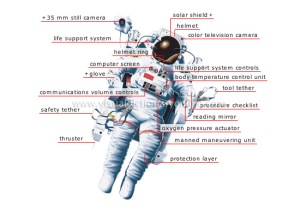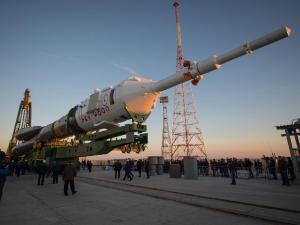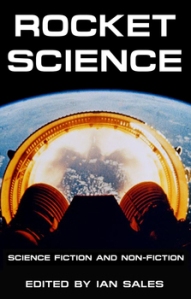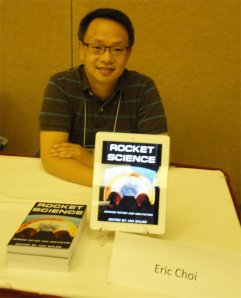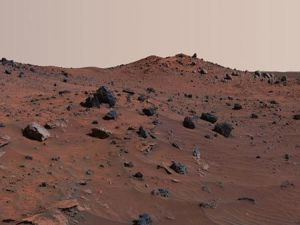There has been a long-running disagreement among those involved in space science over which are better at exploring the Solar System: robots or human beings. The former, obviously, despite their huge price tags, are cheaper. But humans are far more flexible and effective. And now that Curiosity is on Mars, the robot proponents are going to feel pretty smug for a while.
The problem is that there’s a bigger picture to take into consideration. Yes, we could populate the other planets with robots and learn some fascinating and important science. But that still keeps us tied to this planet, and we’re in very real danger of making our home world untenable. It’s not the pioneer spirit that demands we start sending people to visit and settle the other worlds and moons of the Solar System, it’s survival. And we’re not going to get anywhere close to a position to do that if we keep on sending out robots.
True, at present our technology isn’t quite up to a crewed Mars mission. We could build the rockets and get what we need into orbit, we could send it on a transfer orbit, we could even land it on the Martian surface. But we don’t know yet how to effectively keep the human payload alive during the months-long journey through interplanetary space. And then there’s the cost. Curiosity cost $2.5 billion. A crewed mission would cost quadrillions, and require the sort of long-term investment and political will no government would ever countenance. And, to be honest, given that cost, the mission would have to be something special…

Source: NASA
Which is not that difficult to achieve. Most mission profiles would require a stay of months on Mars, perhaps even a couple of years. The Red Planet is not the Moon. It’s not a three-day flight, spend as long as you can on the surface, and then head straight for home. The orbits of the Earth and Mars, and the millions of kilometres between the two which increase and decrease due to those orbital paths, mean departures from each planet have to be carefully scheduled. An conjunction-class mission would launch when Mars is on the other side of the Sun to Earth, would require between 250 and 300 days for journey there, and give a stay time on Mars on 60 to 90 days. A opposition-class mission, however, which would launch while the two planets are close, would take 450 days to travel there and give a stay time of up to 500 days. The conjunction-class mission requires less energy than the opposition-class mission.
Keeping the crew alive in interplanetary space for almost a year is not something we really know how to do yet. There have been experiments with Controlled Ecological Life Support Systems, but a Closed Ecological Life Support Systems is beyond us. Because a year in space without resupply either requires huge amounts of supplies, or near-perfect recycling. And every kilogram of those supplies is going to cost well beyond its actual price because it needs to be lifted out of Earth’s gravity well and taken along to Mars. Even in situ replenishment on the Martian surface might prove too difficult, so the mission will need some sort of CELSS which can operate for the full length of the mission.
I freely admit I would be delighted to see a human being on Mars during my lifetime. But, realistically, I don’t expect it to happen. It wouldn’t surprise me if it took until the middle of next century before we got further than the Moon. At present, the only way we’re going to get there is via our imaginations. Which is pretty sad, when you think about it.



